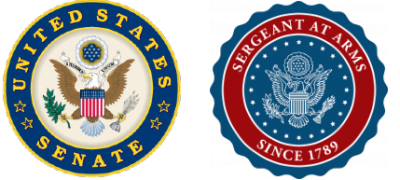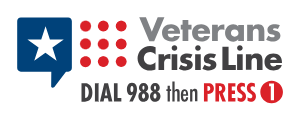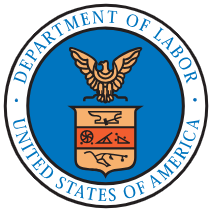Stars of Valor
Fellowships Program
PURPOSE AFTER SERVICE AND SACRIFICE
The United States Senate Stars of Valor Fellowships Program
The United States Senate Stars of Valor Fellowships Program
Eligilibity
Eligilibity
There are three paths to eligibility for the Program: Qualified Veterans, Qualified Gold Star Family Members, and Qualified Active-Duty Military Spouses.
There are three paths to eligibility for the Program: Qualified Veterans, Qualified Gold Star Family Members, and Qualified Active-Duty Military Spouses.
McCain-Mansfield Fellowship Program
McCain-Mansfield Fellowship Program
Qualified veteran fellowship candidates are veterans who provide documentation demonstrating that they meet all of the following criteria:
- Honorable discharge or a general discharge (DD214 or other official documentation);
- Released from active duty within the last five years;
- Terminal pay grade at or below E-5 (Enlisted), CW-2 (Chief Warrant Officers), or O-3 (Officers), including those promoted to the next grade within six months of separation from active duty; and
- Wounded or Disabled.
- “Wounded” status is defined in 10 U.S.C. § 1129 and shall be recorded by the Department of Defense in a DD Form 214 or other official documents.
- “Disabled” status is defined in 5 U.S.C. § 2108(2) and requires a service-connected disability rating of 30% or greater as documented by the Department of Veterans Affairs.
Qualified veteran fellowship candidates are veterans who provide documentation demonstrating that they meet all of the following criteria:
- Honorable discharge or a general discharge (DD214 or other official documentation);
- Released from active duty within the last five years;
- Terminal pay grade at or below E-5 (Enlisted), CW-2 (Chief Warrant Officers), or O-3 (Officers), including those promoted to the next grade within six months of separation from active duty; and
- Wounded or Disabled.
- “Wounded” status is defined in 10 U.S.C. § 1129 and shall be recorded by the Department of Defense in a DD Form 214 or other official documents.
- “Disabled” status is defined in 5 U.S.C. § 2108(2) and requires a service-connected disability rating of 30% or greater as documented by the Department of Veterans Affairs.
The SFC Sean Cooley and SPC Christopher Horton Gold Star Family Fellowship Program
The SFC Sean Cooley and SPC Christopher Horton Gold Star Family Fellowship Program
Qualified Gold Star family member fellowship candidates include:
-
- The widow or widower (remarried or not) of the deceased servicemember or veteran who died of service-connected injuries.
- Each parent (mother, father, stepmother, stepfather, mother through adoption, father through adoption, and foster parents who stood in loco parentis) of the deceased servicemember or veteran who died of service-connected injuries.
- Each child, stepchild, or adopted child of the deceased servicemember or veteran who died of service-connected injuries.
- Each brother, sister, half-brother, or half-sister of the deceased servicemember veteran who died of service-connected injuries.
-
- Documentation of kinship, such as a marriage license or birth certificate; and
- Applicable documentation pertaining to the servicemember’s or veteran’s death:
- Proof of death in the line of duty from the Department of Defense or Department of Veterans Affairs including:
- DD Form 1300 “Report of Casualty” (provided by the service casualty office);
- DD Form 2064 “Certificate of Death” (Overseas); or
- Other operative, relevant documentation provided by the Departments.
- Proof of death due to service-connected injuries documentation from the Department of Veterans Affairs.
- Proof of death in the line of duty from the Department of Defense or Department of Veterans Affairs including:
Qualified Gold Star family member fellowship candidates include:
-
- The widow or widower (remarried or not) of the deceased servicemember or veteran who died of service-connected injuries.
- Each parent (mother, father, stepmother, stepfather, mother through adoption, father through adoption, and foster parents who stood in loco parentis) of the deceased servicemember or veteran who died of service-connected injuries.
- Each child, stepchild, or adopted child of the deceased servicemember or veteran who died of service-connected injuries.
- Each brother, sister, half-brother, or half-sister of the deceased servicemember veteran who died of service-connected injuries.
-
- Documentation of kinship, such as a marriage license or birth certificate; and
- Applicable documentation pertaining to the servicemember’s or veteran’s death:
- Proof of death in the line of duty from the Department of Defense or Department of Veterans Affairs including:
- DD Form 1300 “Report of Casualty” (provided by the service casualty office);
- DD Form 2064 “Certificate of Death” (Overseas); or
- Other operative, relevant documentation provided by the Departments.
- Proof of death due to service-connected injuries documentation from the Department of Veterans Affairs.
- Proof of death in the line of duty from the Department of Defense or Department of Veterans Affairs including:
The Active-Duty Military Spouse Fellowship Program
The Active-Duty Military Spouse Fellowship Program
Qualified active-duty military spouse candidates include:
- Active-Duty military spouses at the time of application must be the spouse of an active-duty U.S. Armed Forces servicemember.
- Active-Duty servicemembers work for the U.S. Armed Forces full-time and are subject to permanent change of station, or permanent change of assignment orders, upon completion of each tour of duty.
- Those servicemembers subject to Title X mobilization are not eligible.
- Active-Duty military spouses at the time of application must be the spouse of an active-duty U.S. Armed Forces servicemember.
The active-duty military spouse must provide eligibility documentation as described below:
- Proof of spouse’s active-duty service, such as a Department of Defense issued Common Access Card.
- Documentation of marriage to the active-duty servicemember, such as a marriage certificate or a Department of Defense Uniformed Services identification card.
Qualified active-duty military spouse candidates include:
- Active-Duty military spouses at the time of application must be the spouse of an active-duty U.S. Armed Forces servicemember.
- Active-Duty servicemembers work for the U.S. Armed Forces full-time and are subject to permanent change of station, or permanent change of assignment orders, upon completion of each tour of duty.
- Those servicemembers subject to Title X mobilization are not eligible.
- Active-Duty military spouses at the time of application must be the spouse of an active-duty U.S. Armed Forces servicemember.
The active-duty military spouse must provide eligibility documentation as described below:
- Proof of spouse’s active-duty service, such as a Department of Defense issued Common Access Card.
- Documentation of marriage to the active-duty servicemember, such as a marriage certificate or a Department of Defense Uniformed Services identification card.
Program Benefits
Program Benefits
- Paid, two-year full-time employment
- In-depth exposure to the legislative process, including Senate operations
- Comprehensive insight into public policy development
- Federal Employee Health Benefits
- Holiday & leave accruals
- Valuable networking opportunities in Government Relations, particularly with other Senate staff
- Chance to make lasting relationships with Senators, congressional staff, issue advocates, and constituents nationwide
- Paid, two-year full-time employment
- In-depth exposure to the legislative process, including Senate operations
- Comprehensive insight into public policy development
- Federal Employee Health Benefits
- Holiday & leave accruals
- Valuable networking opportunities in Government Relations, particularly with other Senate staff
- Chance to make lasting relationships with Senators, congressional staff, issue advocates, and constituents nationwide
Common Fellow Job Duties
Common Fellow Job Duties
Specific duties will vary depending on the requirements of each Senate office. Job duties may include, but are not limited to:
- Working as a constituent services representative
- Helping constituents resolve issues with Federal agencies
- Serving as liaison to local Veterans Service Organizations
- Attending local events and meetings on behalf of the Senator
- Supporting the office’s legislative team
Specific duties will vary depending on the requirements of each Senate office. Job duties may include, but are not limited to:
- Working as a constituent services representative
- Helping constituents resolve issues with Federal agencies
- Serving as liaison to local Veterans Service Organizations
- Attending local events and meetings on behalf of the Senator
- Supporting the office’s legislative team





